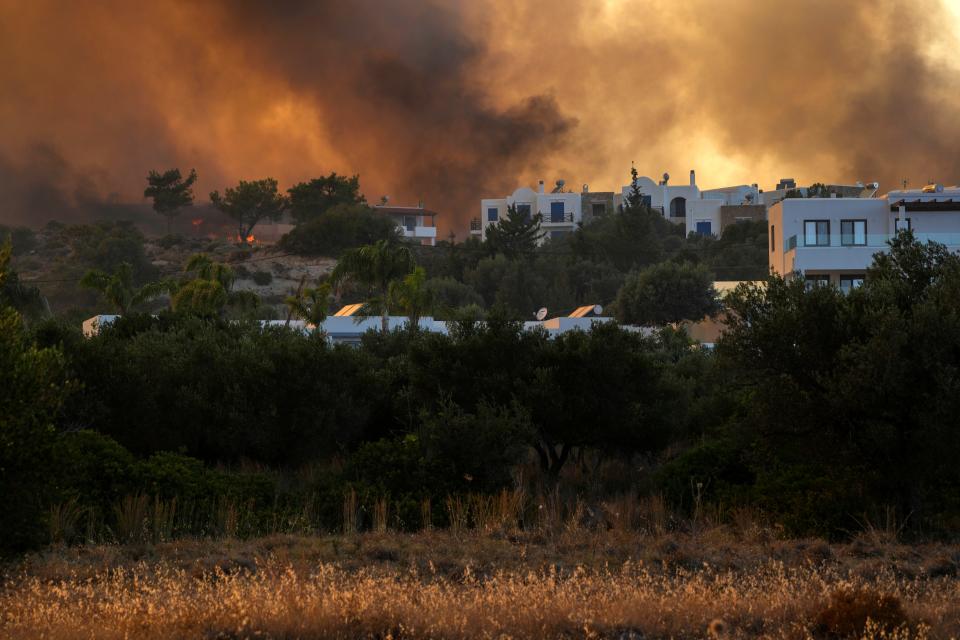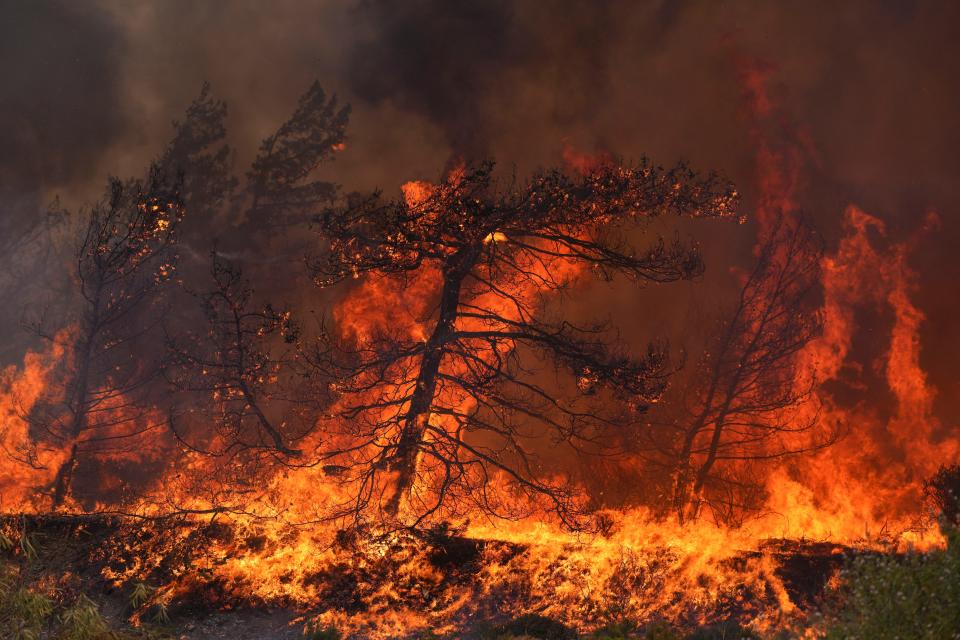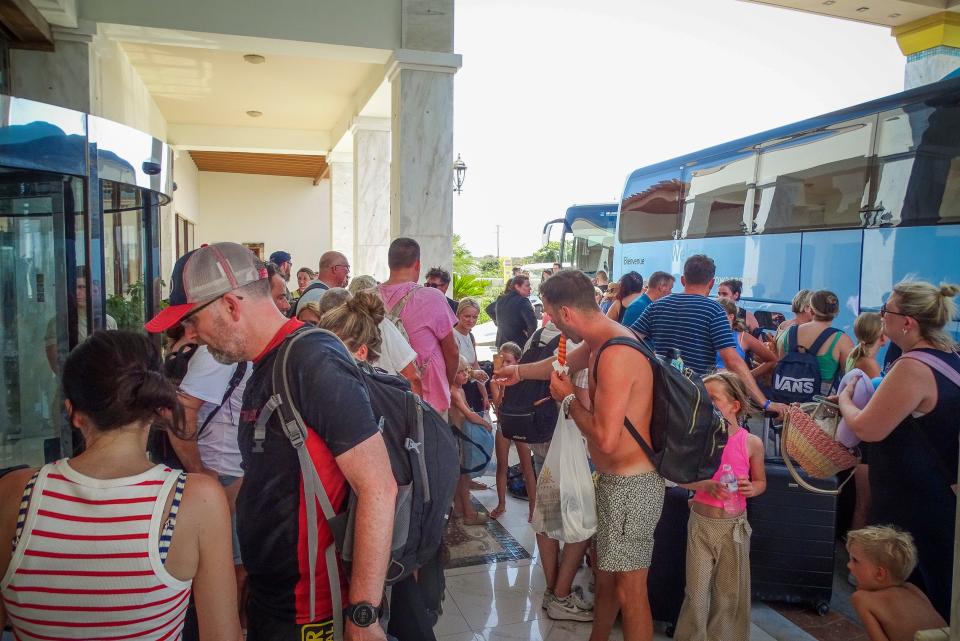Wildfire risk remains 'very high' across Greece: What travelers should know
The dangers of wildfires in Greece are far from over and could disrupt travel for a while to come.
More than 20,000 people, many of them tourists, have been evacuated from Rhodes alone, and the U.S. Embassy & Consulate in Greece and Greek authorities warn the risk of wildfire remains "very high" for the rest of the country.
“We are going through perhaps the toughest days of the summer with the temperatures showing a further increase,” Hellenic Fire Service Fire Col. Ioannis Artopios said in a statement Tuesday. “We all remain in a state of high alert.”
Hopeful travelers may be considering adding travel insurance to upcoming trips to the islands, but it may be too late.
“I wouldn't recommend buying a policy now,” said Megan Moncrief, president of SquareMouth, a site where travelers can compare insurance policies for trips.
Here’s why and what travelers visiting Greece should know:

Which islands are on fire in Greece?
The wildfires are mainly in Rhodes and Corfu, but there are also fires in Evia and Achaia, according to the Hellenic Fire Service.
Can I still fly to Rhodes?
Rhodes International Airport remains fully operational.
“Additionally, all airport staff and partners are making every effort to assist the thousands of tourists who wish to depart from the island, always in cooperation with the respective authorities,” the airport said on its website.
The airport advises travelers first to reach out to their airlines and tour operators about any changes related to the fires.

Are wildfires covered by travel insurance?
Yes and no.
“Insurance policies, typically, are to cover unforeseen events,” said Meghan Walch, director of Product at travel insurance comparison site InsureMyTrip.
So travelers who purchased plans before the fires started may be covered, but that’s not the case for new plans going forward.
“That's because the fires are already a known event,” Moncrief said. “So the way that the insurance carrier looks at it is, it’s likely to impact your trip and you know about it … If there's anything relating to these fires, it won't be covered regardless of when you buy the policy (now).”
What cannot be covered under trip insurance?
In addition to known events, fear of travel is excluded by standard plans.
“We saw this quite a bit during COVID,” Walch said. “You may have booked a trip to somewhere where it's suddenly turning into a hotspot, (but) general fear of travel is also not covered under the policy.”
Travelers can opt for broader Cancel for Any Reason policies, which have higher premiums, but those generally have to be purchased within a short window of trip booking. They also don’t recoup everything.
“Typically the reimbursement is anywhere from 50% to 75%, depending on the policy, and you have to be canceling your trip at least two days prior to departure,” Walch said.
Can I get travel insurance after I have left?
“Unfortunately, it would be too late,” Walch said, but there is plenty of time beforehand for most plans.
“Technically, with a comprehensive travel insurance plan, you can purchase them up until the day before departure. But if you're looking to cover the cost of your trip for something that may happen down the road prior to departure, you obviously want to be purchasing well in advance,” she said.
As with Cancel for Any Reason plans, travelers with preexisting medical conditions may also need to purchase plans within a short window of booking their trips if they want those conditions covered.

How much does travel insurance usually cost?
“If you think about how much you're spending on your trip, you could spend between like 4% to 7% of the cost of that trip on a policy,” Moncrief said, acknowledging no one likes to spend more money on travel. “In the grand scheme, it can be a worthy investment.”
Which insurance is best for travel?
“We always recommend, depending on your needs, to buy the least expensive policy that includes those benefits,” Moncrief said. “Just because the policy has a cheaper premium doesn't mean that it's inferior coverage.”
What will differ, however, is what’s offered by third-party providers versus point-of-sale plans offered by airlines and cruise lines, which may only cover a portion of trips.
In addition to comparing plans, Moncrief recommends looking at reviews for claims processes. “Buying a policy is one thing, but what is the claim like?” she asked. “Am I going to be doing this for six months or six days? That should all be taken into consideration as well.”
Travel insurance: These are the best options
This article originally appeared on USA TODAY: Greece wildfires may not be covered by travel insurance

